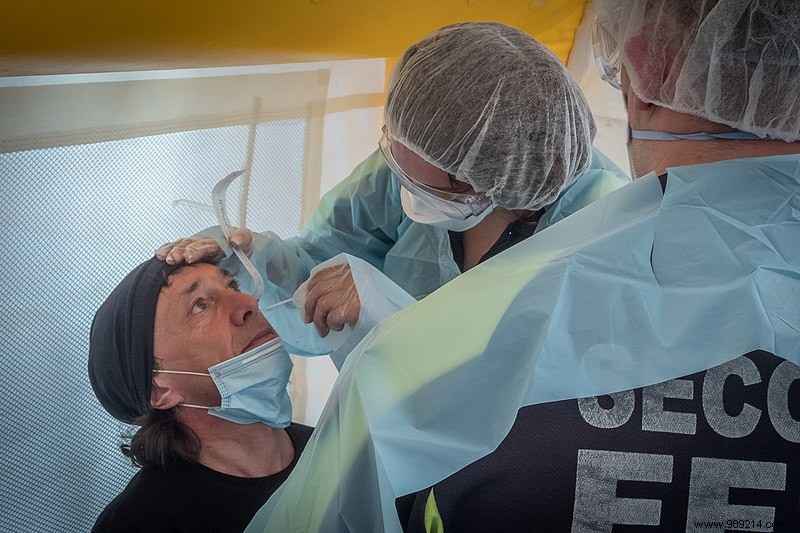Shortly after undergoing a nasal test for coronavirus, an American patient consulted for something else. This person suffered from headaches and vomiting. In fact, the test damaged the base of his skull, causing cerebrospinal fluid to leak out of his nose.
A publication in the journal JAMA Otolaryngology–Head &Neck Surgery on October 1, 2020 reported a rather rare case. According to doctors at the University of Iowa Hospital (USA), a Covid-19 nasal test pierced the wall of the brain of a patient. However, she suffered from an undiagnosed health problem, in addition to the possible incorrect application of the nasal test.
According to the doctors, the patient had a nasal test before an operation for a hernia. She then noticed the appearance of a transparent liquid coming from one of her nostrils and was also suffering from vomiting, headaches and a stiff neck. The doctors then quickly identified the presence of cerebrospinal fluid. Its mission is to protect the brain in the cranial box.
The patient feels that the rod for the nasal test has gone a little too far in the nostril. However, the heart of the problem was elsewhere, namely prior treatment for intracranial hypertension. At the time, doctors used a needle to drain fluid. Unfortunately, the patient then developed an encephalocele, causing an overflow of the brain wall on the nasal cavities. However, this evil had not been identified for several years before the test.

The patient is now well, but if left unchecked, she could have developed a life-threatening brain infection. For doctors, the test did not directly cause problems at the bony base of the skull. On the other hand, this same test caused trauma to the encephalocele already present. The authors of the publication believe that this case proves that medical professionals absolutely must follow the protocols with the utmost seriousness.
In addition, patients who have had sinus surgery should be able to request oral tests. Researchers believe more alternative methods to nasal screening should be considered . They also call for the greatest vigilance regarding the type of test performed, especially in people with risks at the base of the skull.